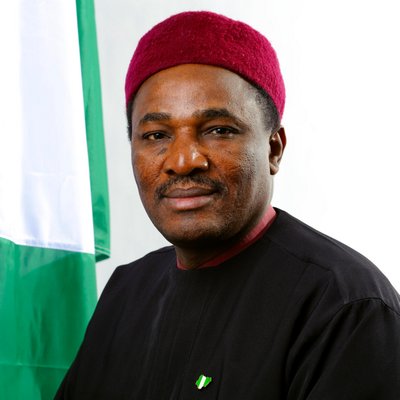The Federal Government of Nigeria has renewed its commitment to combating the escalating problem of social vices within its educational institutions by reconstituting the Special Committee on the Campaign Against Social Vices in Secondary and Tertiary Institutions. This revitalized committee, now chaired by Professor Jerry Ugokwe, a seasoned scholar, diplomat, and former legislator, is tasked with tackling the growing menace of cultism, drug abuse, cybercrime, and examination malpractice that threaten the integrity and future of Nigerian education. The committee’s inauguration, overseen by the Senior Special Assistant to the President on Students Engagement, Sunday Asefon, signals a renewed urgency in addressing these issues and fostering a safer, more conducive learning environment for Nigerian students. The committee’s diverse membership, comprising representatives from law enforcement agencies, student bodies, civil society organizations, and other relevant stakeholders, underscores the government’s recognition of the multifaceted nature of the problem and the need for a collaborative approach.
The decision to reconstitute the committee, previously inaugurated in 2024 and disbanded shortly before this new appointment, emphasizes the government’s determination to reinvigorate the fight against social vices. The previous committee’s efforts, while commendable, were deemed insufficient to address the escalating challenges. The appointment of Professor Ugokwe signifies a strategic shift, leveraging his extensive experience in governance, youth development, and legislative affairs to provide dynamic leadership and fresh perspectives to the committee’s work. His background positions him well to understand the complexities of the issues at hand and to devise effective strategies for engaging with various stakeholders, including students, educators, parents, and community leaders. The urgency of this task is further underscored by the increasing prevalence of these social vices, which not only disrupt the educational process but also pose a significant threat to the overall societal well-being.
Professor Ugokwe’s acceptance speech articulated a clear and resolute vision for the committee’s work. He vowed to address the root causes of these social ills, ranging from the easily accessible nature of drugs to the insidious practices of human trafficking. His emphasis on collaboration highlights the understanding that combating these deeply ingrained issues requires a collective effort across all sectors of society. He called for active participation from every Nigerian, recognizing the shared responsibility in creating a nurturing environment where young people can thrive without the burden of these destructive influences. This call to action extends beyond government agencies to encompass parents, educators, community leaders, and the students themselves, fostering a sense of shared ownership and commitment to addressing the challenges.
The announcement of a National Anti-Social Vices Summit, scheduled for July 26, 2025, in Abuja, further underscores the committee’s proactive approach. This summit, to be followed by zonal summits across the six geopolitical zones of Nigeria, is designed to bring together stakeholders from across the education sector to formulate a comprehensive and unified strategy. The summits aim to facilitate open dialogue, share best practices, and develop actionable plans to curb the spread of social vices in educational institutions. This national and zonal approach demonstrates a commitment to reaching all corners of the country and tailoring solutions to specific regional challenges. It emphasizes the importance of local engagement and ownership in effectively combating these issues.
Professor Ugokwe’s vision extends beyond merely addressing the immediate problems. He envisions a future where Nigerian youth have access to quality education and are empowered to become positive change-makers, free from the distractions and dangers of cultism, drug addiction, cybercrime, and examination malpractice. This vision recognizes the crucial role education plays in national development and the importance of providing a safe and supportive learning environment for future generations. By focusing on empowering youth and fostering their potential, the committee aims to create a ripple effect of positive change throughout Nigerian society.
In his concluding remarks, Professor Ugokwe expressed gratitude to President Bola Ahmed Tinubu and Sunday Asefon for entrusting him with this important responsibility. He pledged to work tirelessly, guided by the principles of justice, equality, and an unwavering belief in the potential of Nigeria. This commitment reflects a deep understanding of the gravity of the task and a dedication to working collaboratively with all stakeholders to achieve meaningful and lasting change. The reconstitution of the committee, coupled with Professor Ugokwe’s leadership and vision, represents a crucial step in safeguarding the future of Nigerian education and empowering its youth to reach their full potential. The success of this endeavor will hinge on the collective effort of all Nigerians in working together to create a society free from the debilitating grip of social vices.














